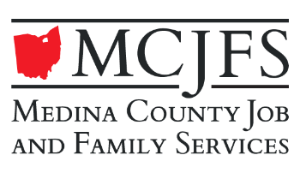Foster care is an opportunity to extend love and open your home to a child when they need it the most, a privilege that many people find to be honorable and important. But those of us who may have entertained the idea of fostering are often stopped by questions and concerns that go unanswered, which leave more and more children without that safe place they can call home.
Hopefully, the answers to these common questions will help you take that first step and act upon the call you feel, to provide a space for the most vulnerable in our community to be safe, supported, and loved.
What is the need like for foster care in Medina County?
We are currently recruiting for all ages; however, our greatest need is for families who are willing to take school aged children, teens, and sibling groups.
What is required of a foster parent?
The word “foster” means to encourage or promote the development of something or someone, so as a foster parent, your role is to encourage or promote the development of the child or children in your care. This means providing for their basic needs, like food, clothing, and shelter; transporting them to various activities; encouraging their academic progress; and creating a safe place for them to learn and grow.
Whether or not you have other children—yours by birth or someone else’s—in your care, it’s important to help children to feel equal and included in all of your family activities.
Children in foster care usually experience a range of complex feelings and need your help learning how to cope with those emotions. As a foster parent, you are there to help guide them and provide consistent discipline to help them learn and grow.
While you are creating this space for your foster child, it is also important to remember that they come into your home with their own identity and traditions, which deserve your support and encouragement. Ultimately, the goal of fostering is to reunify a child with their biological family, which means working together with professionals and family members to make that process smooth and effective.
Who can become a foster parent?
In order to be a foster parent in the State of Ohio, you need to be at least 18 years of age. There is no minimum household income requirement—you just need to be able to meet basic household needs. If you are employed, assistance for childcare is available; you do not need to be a stay-at-home parent. It also does not matter whether you own your own home or rent from someone else so long as you have adequate space for a child and their belongings.
You can become a foster parent regardless of your marital status. You can be single, married, widowed, or divorced. Any spouse or live-in partner is required to attend pre-service training as well, since you’ll want to be on the same page about what is expected of you as foster parents.
How do we combine our family with foster children?
Our hope is that foster parents will integrate foster children into their existing family structure in a way that makes everyone feel safe and welcome. There will obviously be time needed to transition and adjust to each other as you all learn how to live together in the same house. They should be involved in whatever activities are taking place in your home.
Your own child or children can share a bedroom with foster children, so long as they have their own bed—kiddos cannot share a bedroom with the opposite sex unless all of the children in the bedroom are under the age of five.
Foster children are typically permitted to go on vacation with you, provided you’ve given their case worker sufficient notice as well as an address and phone number for where you’ll be staying.
Will children be able to visit with their birth family?
Remember, the ultimate goal for fostering is reunification, so maintaining and cultivating healthy relationships with a child’s birth family is important. Birth families are entitled to visitation with their children by state law. The child’s case worker will arrange visitation, and visits take place at The Children's Center of Medina County or another agreed upon location.
As you can see, there aren’t really that many barriers to being able to provide a safe and welcoming home for a child in need—all it takes is willingness and time. Take that first step today by submitting an inquiry form, which will give us some information to get in touch with you about fostering. If you have more questions before entering into the process, we’d be happy to address those with you. Learn more about Fostering in Medina County. You can make a difference in a child’s life.
« Back to BlogPhone: (330) 722-9398
Toll-Free: (800) 706-2732
Fax: (330) 722-9238
Email: medina_child_support_01@jfs.ohio.gov
